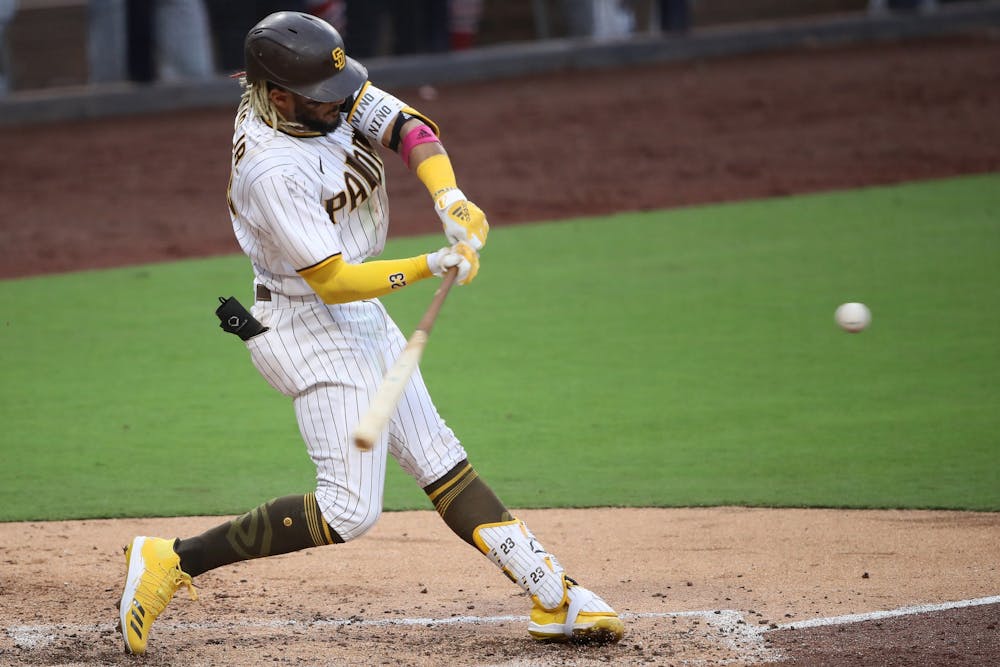Connor Smith is a junior news journalism major. His views do not necessarily reflect those of the newspaper. Write to Connor at cnsmith@bsu.edu.
“Just cancel the season!”
“What’s the point?”
“There’s no way this can be done safely.”
Well, here we are now.
Between seven-inning doubleheaders, a universal designated hitter, reduced travel and other modifications, Major League Baseball completed its 2020 60-game regular season without a hitch, after months of uncertainty surrounding whether the league would play at all in 2020 due to COVID-19.
However, one of those modifications only began last week. The MLB expanded from its traditional 10-team playoff format (three divisional winners and two wild cards per league) and decided to go “bracket-style” with its 2020 format.
Last week, the MLB began its postseason with its Wild Card round. The higher seeds (No. 1 through 4) in each league hosted the lower seeds (No. 5 through 8) for best-of-three series, combining for 16 teams total.
To call last week’s action “entertaining” would be a mere understatement. Over the eight series, two significant upsets took place. The No. 6 Houston Astros, who barely snuck in the postseason after finishing the 2020 regular season 29-31, defeated the AL Central-champion No. 3 Minnesota Twins. In the NL, the No. 6 Miami Marlins — who finished above .500 for the first time since 2009 — defeated the No. 3 Chicago Cubs.
Like it or not, these upsets give reason to embrace the MLB’s expanded postseason. Many baseball purists will argue the league should have remained with its traditional 10-team format. However, a 60-game regular season is a “sprint” for most teams, as opposed to the customary 162-game “marathon.”
Who knows what would have happened over a full season? This is why it makes perfect sense to expand the field, even if for just 2020, as this season only represented a small sample of what normally takes place from March to September.
Throughout the 2020 regular season, many fans scrutinized commissioner Rob Manfred for “poor planning” heading into the season due to a handful of team-wide outbreaks. The MLB opted to play its regular season in home ballparks, as opposed to one or two centralized bubble locations, but that changes with this week’s National and American League Divisional Series.
The No. 1 Los Angeles Dodgers will face the No. 4 San Diego Padres in Arlington, Texas, while the No. 2 Atlanta Braves will play the Marlins in Houston as part of the 2020 NLDS, beginning Oct. 6.
Meanwhile, the No. 1 Tampa Bay Rays are facing the No. 5 New York Yankees in San Diego, whereas the No. 2 Oakland Athletics are playing the Astros in Los Angeles in this year’s ALDS. Both series began Oct. 5, with the Astros and Yankees taking 1-0 series leads.
All four of these series are divisional matchups, largely in part because seven of the league’s initial 16 teams in this year’s postseason came from the NL and AL Central divisions combined. Each one was eliminated in last week’s Wild Card round, finishing a combined 2-14.
Was this expected? No.
However, it’s 2020 — a year that has taught us to expect the unexpected.
I will say, as much as I love fall ball, this year’s postseason didn’t necessarily have the start I was hoping for as a Chicago White Sox fan. Despite being the first team in the AL to clinch a postseason spot, a tough ending to the regular season placed the team No. 7, ultimately facing elimination at the hands of the Athletics in three games.
Of course, there’s still the favorites. Back in February, I predicted a Yankees-Dodgers World Series. Eight months later, I’d say that prediction is looking pretty solid.
Both teams have obstacles to overcome in this week’s divisional series against two teams that arguably exceeded expectations this season — the Rays and Padres. However, the likes of Aaron Judge and Gerrit Cole in New York, along with Mookie Betts and Clayton Kershaw in Los Angeles look destined to take their respective cities (and coasts) to the Fall Classic.
Even if it only lasts one year, the MLB’s new and bizarre postseason format has given baseball fans a reason to embrace the game and sport. In a year highlighted by uncertainty and surprise, anything is possible in the next three weeks before the MLB concludes its postseason in Arlington, Texas.
Contact Connor Smith with comments at cnsmith@bsu.edu or on Twitter @cnsmith_19.





